This year was a slow and at times difficult year of reading. It started out really well, and I was back into my routine of powering through audiobooks on public transport as I commuted to and from the city for work.
But then came March and everything changed. I was sent home and now permanently work from home. While this came with a lot of positives, when it came to reading I again had to change my habits to adapt to the new environment. I started reading physical books again rather than audio or kindle which had become my go to, and I read a lot slower.
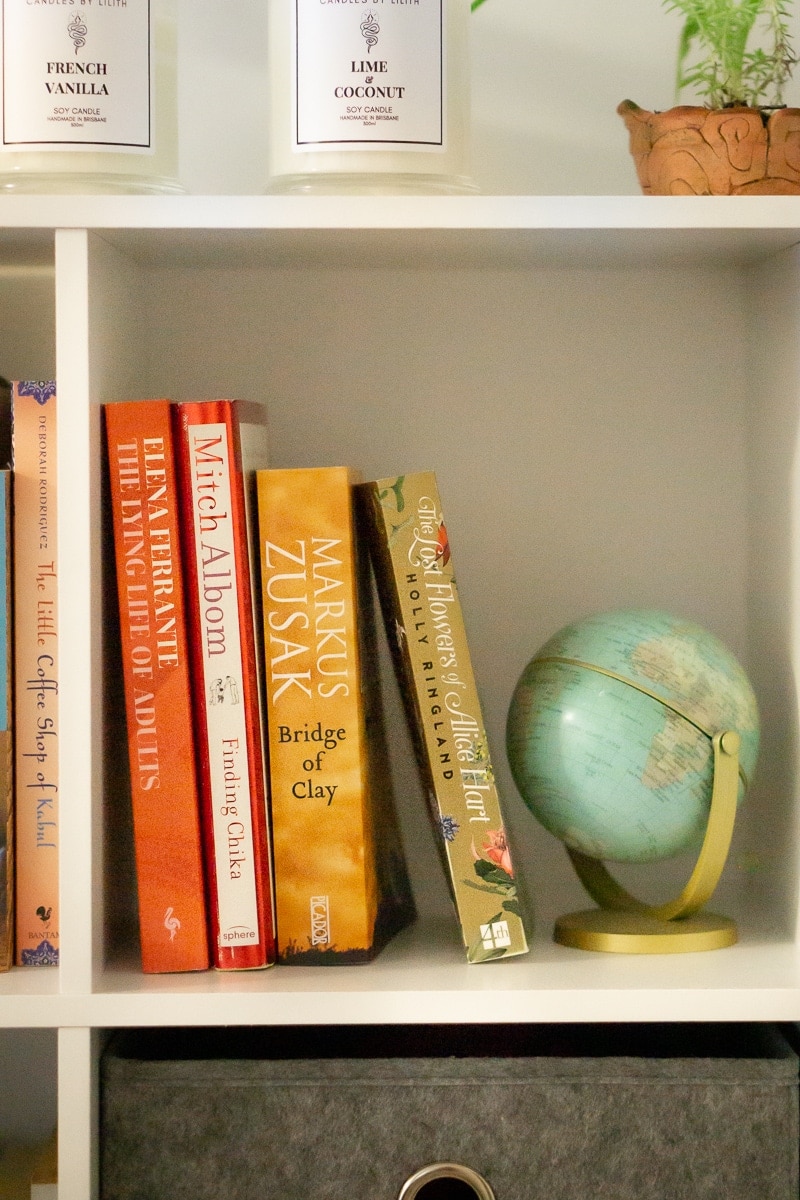
I think this year a lot of people took the extra time they had to read more, however I still didn’t get as much reading done as I would have liked and that’s ok. I found it a lot easier to be distracted by Netflix rather than pick up a book.
Instead, when I decided to read, I chose to find comfort in old favourites and spent a lot of time re-reading books I’ve loved before.
I always try to ensure that there is diversity in the books that I read therefore I continued with my challenge to read more Australian authors and this year I tried to focus on ensuring that included more Aboriginal voices as well having realised that while I have read a lot about race in America, I hadn’t really read too many about it in my own country.
In total I still managed to get through 38 books which is a higher total than last year’s 35, but still not quite as good as my best of 53. I’d like to get that number back around 50 this year again.
Let’s take a look at how the numbers broke down:
- 7 books I’ve read before
- 8 audiobooks
- 9 books by Australian authors, 4 of which by Aboriginal Australians.
- 23 books by female authors
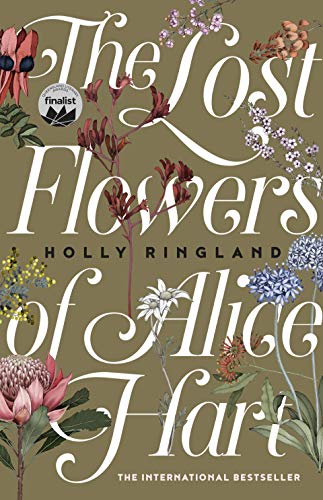
The best book I read in 2020: The Lost Flowers of Alice Hart by Holly Ringland (2018)
This book is one of the most beautifully written that I have ever read. It flows lyrically through the story, using rich descriptions of Australian native flowers and the harsh landscape to weave a poetic narrative over time of love and tragedy.
Alice Hart grows up in a harsh part of Australia, torn between her parents’ troubled personalities. After they both are killed in a tragic event, Alice goes to live with her grandmother on a flower farm. Living here she learns the language of the flowers and the stories of her past start to unravel.
This is her story of escape, and of finding her own story and place in the world. It’s a story about secrets, betrayal, love and heartbreak.
This book gave me such a hangover, it was hard to pick up something else afterward. It deals with heavy topics in such a clever way and stayed with me long after finishing the last page.
“What might it be like, if her father was consumed by fire? All his monsters burned to ash, leaving the best of him to rise, renewed by flames, remade into the man he sometimes was: the man who made her a desk so she could write stories.”
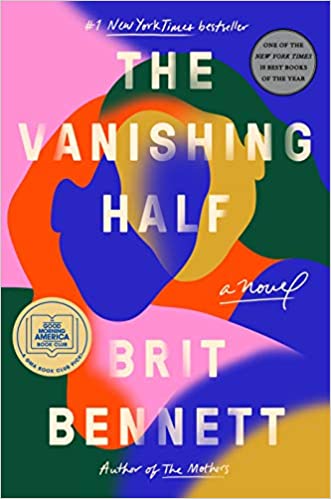
My favourite book published in 2020: The Vanishing Half by Brit Bennett (2020)
Desiree and Stella Vignes are twins who were raised in a town so small, it doesn’t even appear on a map. Growing up in a coloured town they faced challenges of race and class until one day they decided to run away.
From here, one sister returns to her hometown, while the other disappears, choosing to live as a white.
This book is richly constructed, spanning across generations and individual stories. It touches on a multitude of issues, not just race, but also education, status, and wealth. It explores what it means to run away and feel pulled to live a different life.
I really loved this book. It pulled me in directions I never expected and I breezed through it in just a couple of days as I just couldn’t put down this beautifully written exploration of identity.
“She didn’t understand exactly what he meant, but she liked being part of an us. People thought that being one of a kind made you special. No, it just made you lonely. What was special was belonging with someone else.”
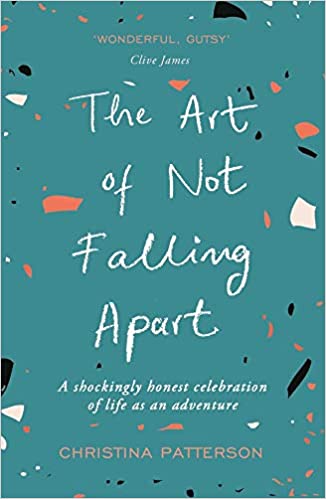
My favourite non-fiction book: The Art of Not Falling Apart by Christina Patterson (2018)
This book is about what happens when things don’t turn out quite right. When things happen that you didn’t expect and make you feel like a failure. It’s about how you can keep going on and be just fine.
Christina interviews people with vastly different life experiences, but all with something that has impacted the course of their life and their attitude towards it. This book is smart, insightful, and funny and I loved reading it.
For a while I’ve felt like I’ve been reading different variations of the same memoir written by a woman over 40, but this one was the diamond that I have been looking for. Patterson views life through the eyes of the individual and shows that we cannot trivialise or compare ourselves and our individual situations and emotions with anyone else.
If you’re looking for a read that will help you feel normal about the emotions you feel or your reactions to situations, then this is that book for you.
“I might never light up the sky. None of us might. It doesn’t matter. What matters is: did you do the best you could with the tools you had at hand?”
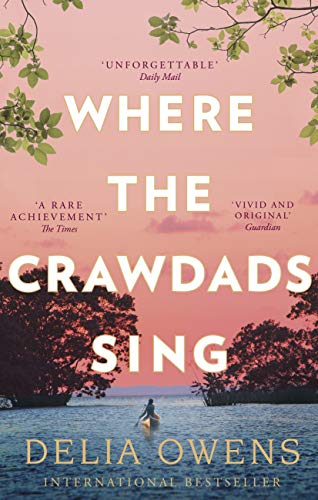
Where the Crawdads Sing by Delia Owens (2018)
This book was on the New York Times Fiction Best Sellers of 2020 list for a combined 30 non-consecutive weeks as well as featured in Rhys Witherspoon’s book club, so you know that it’s going to be good based on that alone.
From the moment I began reading I didn’t want to stop. This book fully consumed me and I struggled to put it down and step away to do something else.
The story spans over two timelines that intertwine, beginning with the murder of a local man as well as the lonley and abusive upbringing of a young girl, Kya Clark who they called the marsh-girl. Kya was one of many children and was left alone to grow up and look after and provide for herself, for which she created a reputation as a wild child of the marsh lands.
As she grows up she develops relationships with the natural world around her, as well as with a boy who teaches her to read and to study. As we learn about Kya’s life, we also are drawn into the mysterious death of Chase Andrews and the lack of evidence and speculation that surround it.
This story is so incredibly told, if you are looking for something to get lost in, this is exactly that book.
“Please don’t talk to me about isolation. No one has to tell me how it changes a person. I have lived it. I am isolation…”
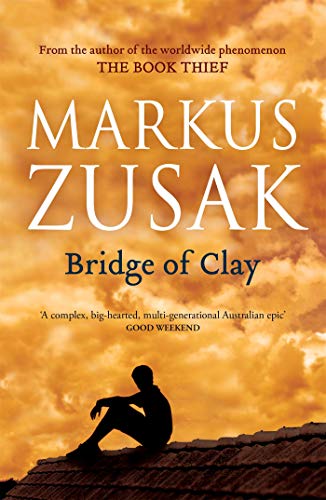
Bridge of Clay by Markus Zusak (2018)
There are five Dunbar boys, a bird, a fish, a cat, and a stubborn mule, all living in the one house. Their mother has died and their father has disappeared leaving them to navigate through their own lives in the only way they could.
Expecting nothing less from Zusak, the story starts at the end and then goes through the events that had led to this moment of the story being told. It is narrated by the eldest brother Matthew but as the title suggests is really about the journey of the middle brother Clay.
This book is stunning. Zusak’s prose is beautifully constructed, reading poetically across each page. He leaves the most important parts of the story unsaid, preferring the reader to find them between the lines.
The story has a strong focus on death, loss and pain, but I didn’t necessarily find it to be a sad book. It was a story about understanding and of acceptance and about how things came to be, and what shapes the people that we become and the impact that has on the next generation.
“He, as much as anyone, knows who and why and what we are:
A family of ramshackle tragedy.
A comic book kapow of boys and blood and beasts.”
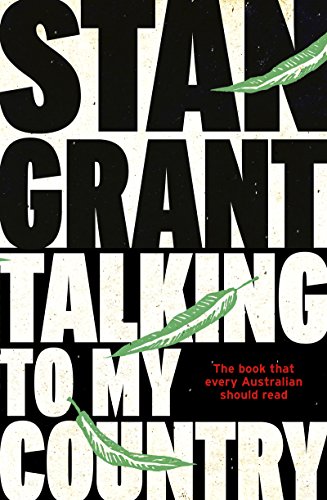
Talking to My Country by Stan Grant (2016)
This book made this list simply because Grant is a powerful storyteller and I really felt challenged in the way I thought about modern Australia.
Many Australians remember in 2015 the country erupted as Adam Goodes was being booed at AFL games, not long after being named Australian of The Year. This sparked an ugly national debate on racism within Australia. Stan Grant responded with a powerful and personal look at the hardship of being indigenous.
This book is deeply personal, exploring the feelings Grant has had throughout his life growing up in poor, regional areas, and then finding education and a love for journalism, which has allowed him to break-free from the cards he was dealt as an indigenous man, those of generational poverty and lack of access to opportunity.
He still struggles with a sense of identity and a true feeling of equality in a country he loves so dearly. He speaks about the challenges and ingrained prejudices he has had to deal with in Australia in a way that is deeply engaging.
Grant is a storyteller and you can feel that come through in the way he communicates not only his own feelings but his observations of the country and of behaviour.
“But for white people, being poor didn’t define them in the way our blackness defined us. Poverty itself could be temporary and if by chance or effort they broke its chains, there’d be a white world waiting.”
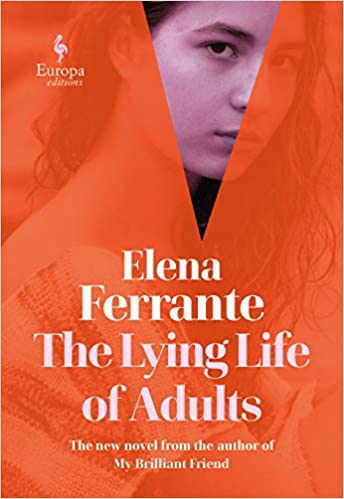
The Lying Life of Adults by Elena Ferrante (2020)
Elena Ferrante is one of my all time favourite authors with her Neapolitan Novel series near the top of my all time favourites. So when I saw her new novel was released, I couldn’t wait to read it.
In true Ferrante form, this story speaks about family and uncovers deep layers into what it’s like to be a teenager exploring her identity.
The story follows the teenage years of Giovanna as she moves through those awkward years from adoring daughter to rebellious teenager, searching for an explanation for her emotions. She searches for a relationship with a wild and estranged Aunt who shows her a different side to Naples and to relationships, both romantic and within her family.
This is a raw look at family from a teenage perspective, as Giovanna learns that her parents are capable of lying to her and how she responds to this. I really enjoyed this book, it’s completely unique but captivating and beautifully written in Ferrentes trademark ‘ugly’ way.
“…they were simply tired of my complaining, they considered unimportant what to me was urgent, in other words they didn’t take me seriously. Maybe at that moment something somewhere in my body broke, maybe that’s where I should locate the end of my childhood.”
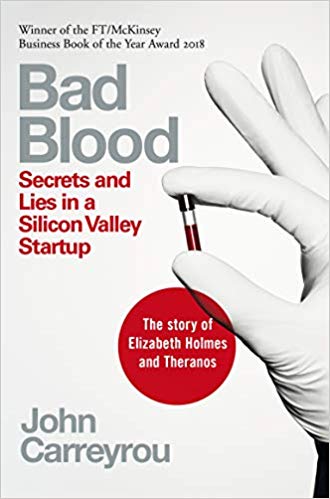
Bad Blood: Secrets and Lies in a Silicon Valley Startup by John Carreyrou (2018)
A young, female entrepreneur drops out of Stanford University and starts a bio-tech company called Theranos in Silicon Valley. It experiences rapid growth, gains millions in funding and the young founder is hailed as being the next Steve Jobs. The only catch is that the tech doesn’t work.
Theranos was veiled in lies and secrecy and as the reporter tells the story you start to be unable to comprehend that this is what was really going on behind closed doors. Also I cannot believe that so many questions were not asked! How did things get this far?
Elizabeth Holmes founded Theranos when she was just 19 and through an obsession with Steve Jobs, started to shape herself and her company around her ideal of what a tech startup should be. She was really good at getting people to like and trust her, and even better at getting their money. What she couldn’t do was deliver the product she was selling.
Throughout the years that the book chronicles, she manages to shut down every question about the product which claimed to do the impossible, run a multitude of clinical tests with a single drop of blood. And thus, the company kept getting funding and kept growing until finally, someone broke their silence.
This book is unbelievable and had me hooked with each step in the case to expose the truth.
“It was as if Boeing built one plane and, without doing a single flight test, told airline passengers, “Hop aboard.”
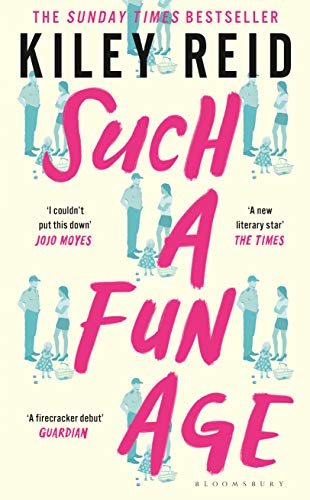
Such a Fun Age by Kiley Reid (2019)
This book so cleverly speaks to the topic of racism within America as it tells the story of Alix Chamberlain, a white mother of two and Emira, her Black babysitter. The book begins with Emeria being stopped by a security guard and unable to leave a local grocery store after being racially profiled while babysitting.
The events that unfold explore racism within society, within relationships and even within our thoughts and actions. This is told through switching POV between Emira and Alix and their individual reactions to the events that unfolded at the supermarket.
What I liked about this book is that it talks about racism in a more subtle way in that it focuses on the smaller interactions, suggestions and assumptions that Emira faces throughout her daily life while also shining a light on issues of class within American society.
I could not put this book down. Reid has crafted a clever novel that moves at a quick enough pace that makes you want to keep reading but also slow enough that she is able to deep dive into the characters motivations. Cannot recommend this book more.
“Or that when white people compliment her (“She’s so professional. She’s always on time”), it doesn’t always feel good, because sometimes people are gonna be surprised by the fact that she showed up, rather than the fact that she had something to say when she did.”
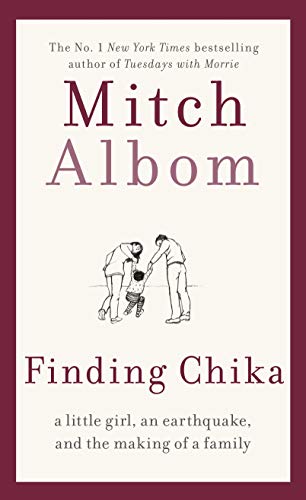
Finding Chika: A Little Girl, an Earthquake, and the Making of a Family by Mitch Albom (2019)
Chika was born in Haiti, just 3 days before the devastating earthquake in 2010. She spent her life struggling in poverty, and after her mother died in childbirth, and her father unable to care for her, she found herself at the Have Faith Haiti Orphanage, which was operated by Mitch Albom and his wife Janine.
This is the true story of how Mitch and Janine found themselves as parents, as they cared for the loud, brave and confident Chika. She made her impression on all of the staff at the orphanage, but there was a special connection with Mitch. And after she was diagnosed with a terminal disease that no doctor in Haiti could help with at age 5, Mitch and Janine decided to take Chika to America in search of a cure.
There is a reason that I will never hesitate when picking up a Mitch Albom book and that is the way he chooses his words so carefully to convey emotion. He tells the story slowly, acknowledging his emotion and his struggles to write the story, while also working through the love he had for Chika and how these events have changed his life.
I expected this story to be sad, and it was, but it was also so beautiful.
”Hopelessness can be contagious. But hope can be, too, and there is no medicine to match it. Chika’s believing in us helped us believe in ourselves.”
***
Have you read any of the books in this list? What is on your reading list for 2021? Let me know in the comments below!
Also if you need more reading recommendations, you can find my favourite book lists from the last 4 years in the blog archives.
Sally x

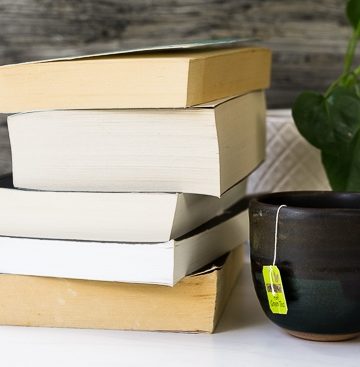
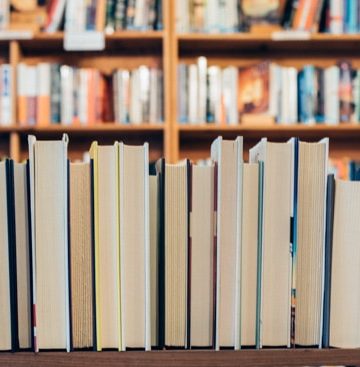
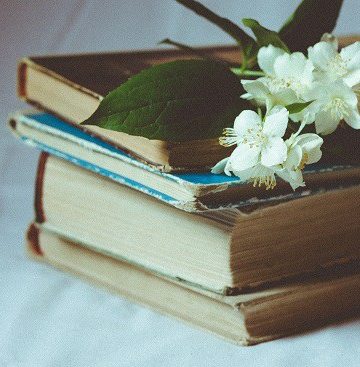
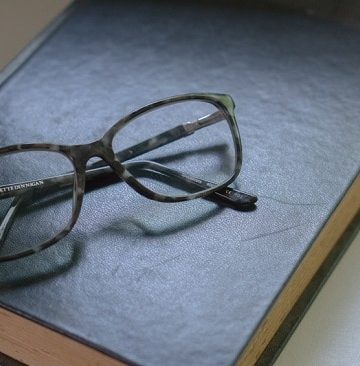
Lyn cook says
Hi Sal
Where the crawdads sing. I loved it so much
Bridge of Clay good too
Happy new year to you and yours xxxx
Sally says
Thanks Lyn! Happy new year!